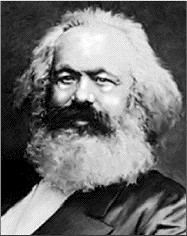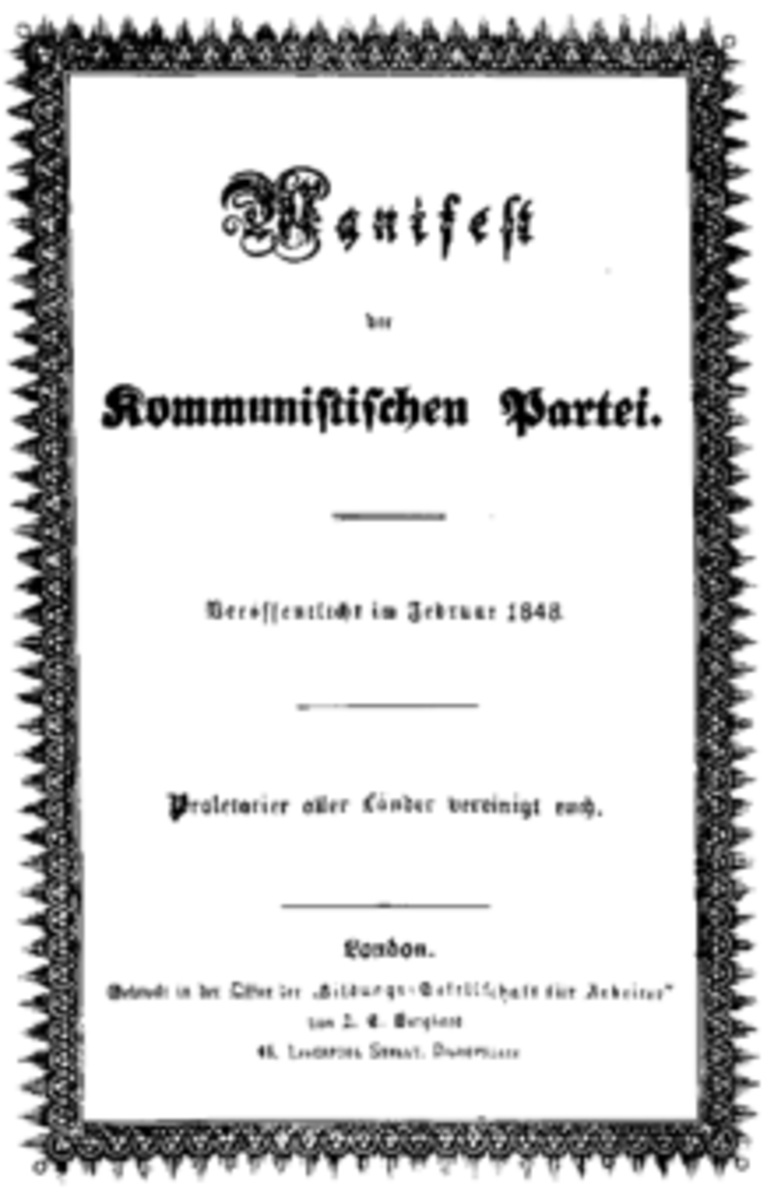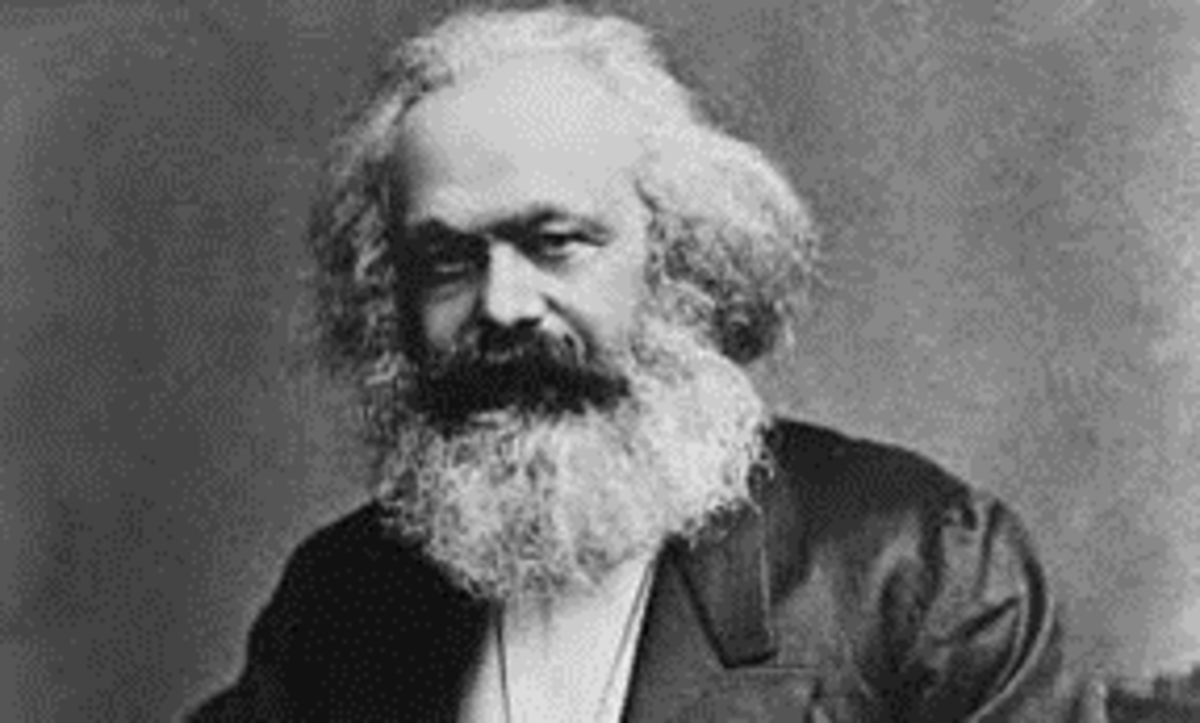Change and Continuity In Marx's Theory of Social Transformation

Since the discovery of the writings of the young Karl Marx scholars have tended to divide Marx work into two separate categories; early and late Marx. The distinction implies significant changes in both Marx’s thought and thus theory. The purpose of this piece shall be to analyze this assumption within the context of social transformation. This approach will thus firstly involve the separation of Marx’s work chronologically whilst identifying the key themes of key texts in their relation to theoretical social transformation. Such a process is sufficient to draw out both changes and continuities within Marx analysis. In the most broad sense, on one hand Marx analysis can be viewed as altering from a philosophical realm to an economic realm. In terms of particulars there is an apparent development of radical humanism and inverted Hegelian dialectics to a position of scientific socialism which springs from historical materialism. While the development of Marx thought can be said to have resulted in these changes, academics have tended to overstate change at the cost of recognizing a continuity of analysis in Marx work. Perhaps most important with regards to continuity is the centrality of alienation within the framework of theoretical social transformation.
Capitalist Society
Before this process can be embarked upon though one would be churlish to ignore Marx critique of capitalist society as it exists. This is a critique which is relatively fixed. One would suggest relative as Marx’s thought, like that of any human being is a process and so by definition is never fixed in its entirety. Understanding this critique of capitalist society will be shown to be central to Marx’s theory of social transformation. This is the case by virtue of capitalism’s ability to create an illusory reality which compels man to a condition of alienation, the importance of which in relation to social transformation shall become apparent as this piece unfolds.
The rise of the Bourgeoisie to political power for Marx signifies a watershed moment in the development of the proletariat. This is an unchanging premise, a fact evident from On the Jewish Question all the way through to Das Kapital. The advent of Bourgeois political supremacy provides a foundation on which the proletarian struggle is built. For this reason the need to include a finite critique of bourgeois society and its relation to the proletarian struggle within this piece becomes apparent.
The growth of the bourgeoisie as a class occurs within the previous mode of production, that being the feudal system. Within this the bourgeoisie appropriate economic power and look to secure these appropriations by subjecting all of society to their conditions of appropriation. What this involves is the creation of a system of equality before the law and material inequality, as well as the destruction of hereditary rule. The newly formed bourgeois state like the feudal state before it becomes a mechanism of class oppression. Furthermore, Marx identified that certain types of society have a tendency to produce certain types of individual. This is not to say that it produces a multitude of identical individuals but that rather a generalised type, reducible to certain component characteristics. Within the capitalist order this means that there is a tendency to produce individuals which mirror capitalism’s core values. Capitalism’s social being moulds men in the spirit of capitalism; its core individualistic values become reflected by man, he is cast into an existence of isolation and separation from fellow man and nature. It is in the earlier works of Marx that these latter points seem to have been attached greatest significance, or rather, more accurately they are central to Marx thought and analysis. For this reason the academic tendency has been to view this period of Marx’s work as one of radical humanism. There has been a further tendency to view this humanism to have been something compromised by or missing from later works.
Social Transformation In Early Marx
At this stage it may be apt to set the parameters which this piece shall assign to early and late Marx. One widely held view is that the early works of Marx are those up to and including the Paris Manuscripts of 1844. Thus late Marx constitutes all post Paris works. This shall then be the framework within which this piece shall operate. Within the early Marx boundary exists two texts of major importance; On the Jewish Question and the Paris Manuscripts.
In On the Jewish Question Marx is responding to fellow young Hegelian Bruno Bauer, although both resided within different camps of Hegelian thought. It is in this essay where the roots of Marx theory of social transformation can be found. In his response to Bauer’s questions regarding religious and political emancipation, Marx moves his analysis from the narrow religious and political sphere to the wider context of human and social emancipation. His approach involves analysing the state in similar terms to the general critique of the bourgeois state given above. More profound in terms of social implications though is Marx’s annihilation of Bauer’s position that freeing the state from religious dominance is religious emancipation. An implication of Bauer’s position would be that the state is the source of human freedom. To defeat Bauer’s proposition Marx gives the example of the United States where the state is purely secular. Within this secular state though, religion thrives and exists with new fervour. The importance of this to the question of social transformation is that by showing that if it is possible to have a state of affairs whereby private and political rights are indifferent, then this can also be the case with regards to the economy.
On the Jewish Question also opens up the tendency of a system to produce individuals who reflect that system’s values. This is an issue inextricably bound to the question of alienation. Within the bourgeois system equal rights are proclaimed for all, but all are not equally free to enjoy these rights. Material restrictions exist objectively in reality preventing the subjective illusory reality espoused by the bourgeoisie from ever coming to fruition. The bourgeoisie can only give political equality as social equality by definition cannot existed alongside the bourgeoisie. Furthermore, the bourgeois political revolution seeks to free society on the basis that all do or can possess equally qualities such as money and education. The impossibility of this is which justifies the differentiation between the subjective illusory bourgeois reality and the objective existence of material restrictions.
While On the Jewish Question may be seen as a humanist/Hegelian essay with economic undertones, The Paris Manuscripts increases the level of economic discussion and conception of materialism, but this does coincide with a strong dose of humanism also. In regards to the humanist tradition this work is driven by an academic dialogue with the work of Feuerbach. It is also through this that the materialist component of Marx comes to the foreground. Feuerbach had designated religion as the source of man’s alienation. Marx charges Feuerbach with providing a false diagnosis and instead presents material forces as the source of alienation. The philosophical tone of Marx here is evident in his pinpointing man’s species being as a capacity for shaping the natural world through labour. Working simultaneously with this though is the economic language associated with the later or ‘mature’ Marx; the increase of wealth through labour and labour as the dictator of commodity value. Furthermore, the division of labour means man encounters the commodities produced by his labour as something alien to him and he himself becomes a commodity. It is this talk of man as a degraded commodity where the prevailing humanism is found in the now developing economic work of Marx. Communism is also discussed in a near mystical manner when Marx describes it as “the positive abolition of private property and thus of human self alienation and therefore the real appropriation of the human essence by and for man”. On the cusp of ‘mature’ Marxism then Marx describes alienation and communism and thus social transformation in mystical or philosophical terms, but this also occurs amidst an increasing economic understanding of society which was to come to the foreground in later works.
Social Transformation in Late Marx
In Marx early works the question of social transformation seemingly is a secondary matter with the texts focused on the human condition. It is however the consideration of the human condition which through alienation brings Marx to the wider issue of social transformation. In the Critique of Political Economy this issue becomes central to Marx work for the first time and although discussed in earlier works only receives exhaustive attention here. In terms of continuity it is important to note that like in the manuscripts Marx starts from the position that commodity production is both the essence of modern society and the source of alienation . Social transformation is how alienation is overcome and for the first time Marx accounts in depth how social transformation is to occur.
Social transformation is understood in terms of the productive forces of society. The productive forces are the qualities which combined constitute a society’s labour power. This can include men, women, instruments of production and the human needs which drive that production. Human relations become inhibited by these productive forces and sow the seeds of social revolution. This social change occurs within a base/superstructure model. The economy or productive forces act as the base and the political and legal institutions built upon are its superstructure. Much like in Marx early works were the economic system produces a certain type of man, so to does the economic base produce certain types of institutions, institutions which like man reflect the base of the superstructure. Furthermore, the mode of production accelerates at a greater pace than the superstructure and so social change occurs when the productive forces are not satisfied within the current system. Proletarian control thus becomes necessary and this in turn alters the entire superstructure in a way that it now reflects the proletarian essence.
The practical side of this is the dictatorship of the proletariat. This is a transitory stage of development and marks the final era of human pre-history. The proletariat shall come to power by revolutionary means. Although Marx did hold hope for the proletariat coming to power without violence where the conditions made it possible. Also of significance is the question of international conditions. Marx began to consider at this stage the possibility of a proletarian revolution surviving within a hostile bourgeois global order, it is certainly the case that any revolution is doomed in the long term without global revolution. Within the transitory stage to communism as circumstances were changed man would change to mirror this. While the dictatorship of the proletariat contains many ambiguities and uncertainties what is clear is that this is to be a long period: “We tell the workers: You have to endure 15, 20, 50 years of civil war in order to change the circumstances, in order to make yourselves fit for power”.
Contextualizing Change and Continuity
Many positions are taken regarding apparent changes in Marx’s theory of social transformation. The most occurring is that Marx changed from a branch of humanism to positivism and from philosopher to economist. The subject matter is often viewed in black or white terms ignoring many shades of grey. The economic theory advanced in Marx later works is often seen as a betrayal of the early Marx. One way to analyse this issue is to consider Marx own conditions as a human being.. He himself stated that
“Men make their own history, but they do not make it as they please; they do not make it under circumstances chosen by themselves, but under circumstances directly encountered, given and transmitted from the past.”
The significance of this is that Marx himself did not chose to be born a German in the 19th century where academia had it’s own unique character and essence. Thus the young Marx reflected this essence if not in thought, in terminology. Marx had been equipped by the German university system with Hegelian and Feuerbachan terminology - this was the language of 19th century German academics and so it was the language Marx spoke. For such reasons Lenin was led to say that:
"It is impossible to fully grasp Marx's 'Capital' if you have not studied or understood the whole of Hegel's 'Logic'. Consequently, none of the Marxists for the past half century have understood Marx."
Alienation itself is a Hegelian concept and it is through Hegel that the continuity in Marx work must be understood. Marx remained a Hegelian by virtue of his use of the dialectic method and his early writings can be understood as the formation of his views on Hegel. Perhaps too much emphasis has been made of the singular reducible components of Marx work at the cost of analysing the unitary whole which is the wider ideology. It is this approach which reveals that there is more consistent between early and late Marx than divisive features. It is through the lens of the wider work that one discovers a continuous ethical core to Marx’s work. This is manifested in all of Marx major works through the continuing centrality of alienation. The evident existence of alienation within all major works is itself a defence against the academic charge of Marx abandoning alienation in later works which Stalin argues in Problems of Leninism, is thus an unfounded criticism.
It would thus seem that while Marx’s thought certainly matured and developed through the ages it is perhaps unfair to divide his work into two eras. The early works certainly do contain a greater degree of humanist and philosophical terminology, but as Althusser said, these must be viewed in light of the wider ideology and not in terms of reducible component parts. The implications for social transformation are obviously rather profound. Although in the later works Marx does speak the language of the economists his wider theory remains consistent and is connected by theme of human alienation, which is of course central to Marx’s theory of social transformation. So in that regard the most significant issue remains fixed all through Marx’s work. As a human being his consciousness was always developing in relation to the external world and this has wrongly brought charges against him of ambiguity and/or betrayal.








